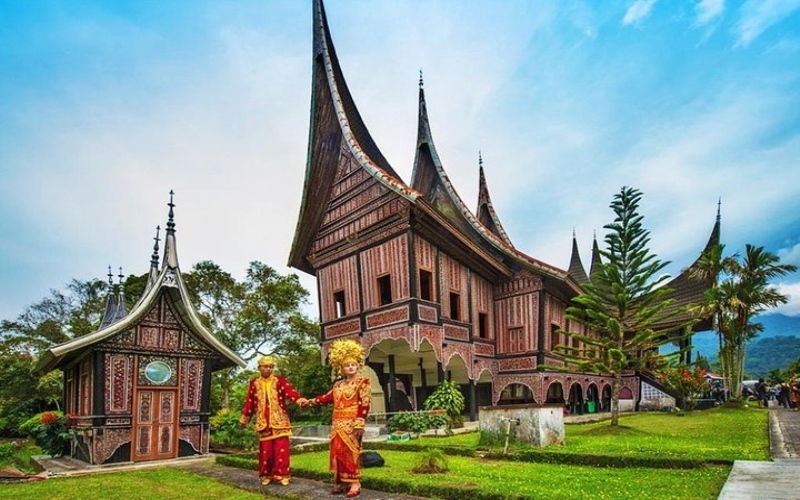Padang, the bustling capital of West Sumatra, Indonesia, is not only known for its stunning natural landscapes and delicious cuisine but also for its rich cultural heritage. From traditional music and dance to unique art forms and local crafts, Padang’s cultural legacy reflects the strong values and history of the Minangkabau people. However, in an era of rapid modernization and globalization, preserving these traditions has become a challenge. Thankfully, cooperatives play a vital role in ensuring that pafipemkopadang.org cultural legacy is safeguarded for future generations. Through collective efforts, cooperatives support artisans, performers, and communities, allowing cultural practices to thrive in a sustainable way.
The Role of Cooperatives in Cultural Preservation
Cooperatives in Padang are community-driven organizations that promote economic, social, and cultural development. They empower individuals by pooling resources, skills, and knowledge, creating a platform for sustainable growth. Beyond economic benefits, cooperatives are deeply engaged in preserving and promoting the region’s rich cultural heritage. Here’s how they are making a difference:
1. Supporting Traditional Arts and Crafts
In Padang, cooperatives provide a crucial platform for artisans and craftsmen to preserve traditional arts and crafts. Minangkabau culture is renowned for its intricate craftsmanship in textiles, wood carvings, and weaving. Cooperatives help sustain these practices by offering members access to markets, training, and resources that otherwise might not be available.
- Weaving and Batik Cooperatives: Traditional weaving, such as songket, and batik-making, are thriving thanks to cooperative efforts. These cooperatives facilitate the distribution of handmade goods while promoting their cultural significance. Members are able to earn a livelihood while ensuring that their traditional techniques are passed down to younger generations.
- Craftsmanship Workshops: Cooperatives often organize workshops where members can learn and refine traditional techniques, preserving centuries-old art forms. These initiatives ensure that knowledge is shared within communities, contributing to the longevity of Padang’s cultural heritage.
2. Promoting Cultural Events and Performances
Cooperatives also play a pivotal role in organizing and promoting cultural events, performances, and festivals that showcase Padang’s diverse heritage. Whether it’s traditional music, dance, or ceremonial rituals, cooperatives provide a platform where these performances can be preserved and appreciated by both locals and tourists.
- Cultural Performance Cooperatives: By establishing groups dedicated to traditional dance, music, and theater, cooperatives ensure that cultural expressions are regularly practiced and shared with the community. These organizations also offer financial and logistical support for events such as traditional festivals and communal celebrations.
- Revitalizing Rituals: Rituals such as Pacu Jawi (buffalo racing) or Tabuik are supported by cooperatives, ensuring that these deeply symbolic cultural events continue to be a vital part of Padang’s identity. The preservation of these rituals not only maintains cultural authenticity but also fosters community spirit and pride.
3. Cultural Education and Preservation Programs
Education plays a critical role in the preservation of cultural heritage. Many cooperatives in Padang integrate cultural education into their operations, ensuring that younger generations are exposed to their traditional practices and understand the significance of their cultural identity.
- School Collaborations: Cooperatives often collaborate with schools to introduce students to traditional music, dance, and craft-making. This hands-on learning helps students appreciate the cultural importance of their heritage, inspiring them to become future advocates for cultural preservation.
- Documenting Cultural Knowledge: Cooperatives also engage in archiving and documenting cultural practices. By recording traditional music, dances, and stories, they ensure that these practices are preserved for historical and educational purposes.
4. Supporting Local Culinary Traditions
Padang is famous for its rich and diverse cuisine, which is deeply intertwined with its cultural heritage. Cooperatives in the food industry play a significant role in sustaining this culinary legacy by offering a platform for local chefs, food artisans, and restaurants to showcase their traditional dishes.
- Cooking Cooperatives: Culinary cooperatives promote Padang’s traditional dishes such as rendang, dendeng, and soto padang by creating opportunities for chefs and food vendors to share recipes, source local ingredients, and innovate within the framework of tradition.
- Preserving Authentic Flavors: By supporting local ingredients and traditional cooking methods, cooperatives ensure that Padang’s culinary heritage remains intact, even in a world where fusion cuisine and modern adaptations are increasingly prevalent.
5. Fostering Intergenerational Collaboration
A significant aspect of cultural preservation is ensuring that traditional knowledge is passed down through generations. Cooperatives in Padang often focus on fostering intergenerational collaboration, creating spaces where elders and youth work together to uphold cultural practices.
- Mentorship Programs: Through mentorship and collaborative projects, younger community members are introduced to the intricacies of traditional arts and crafts. These programs strengthen the cultural bond between the elderly and youth, ensuring the continuation of practices that might otherwise fade away.
- Youth Engagement: Cooperatives often engage young people in activities such as performing traditional dances or participating in cultural festivals. By involving them actively, cooperatives ensure that the next generation maintains a strong connection to their roots.
6. Economic Empowerment through Cultural Preservation
Preserving Padang’s cultural heritage also contributes to the economic well-being of local communities. Cooperatives provide economic opportunities for individuals engaged in traditional arts and crafts, while simultaneously promoting sustainable tourism based on cultural experiences.
- Cultural Tourism Cooperatives: These cooperatives combine traditional preservation with tourism, offering visitors immersive experiences such as workshops, traditional performances, and heritage tours. This model helps sustain both local economies and cultural authenticity.
- Revenue Sharing: Profits generated from cultural products, events, or tourism activities are often shared among cooperative members, ensuring that they receive fair compensation while promoting cultural sustainability.
Challenges and Future Prospects
Despite the significant contributions of cooperatives, challenges remain in preserving Padang’s cultural heritage. Urbanization, globalization, and the rise of modern entertainment options have made it difficult to maintain traditional practices. However, with the continued support of cooperatives and community involvement, these challenges can be addressed.
- Sustainability: Balancing economic growth with cultural preservation is a priority. By emphasizing sustainable practices and promoting community involvement, cooperatives can continue to strengthen Padang’s cultural legacy for the long term.
- Technological Integration: Leveraging digital platforms for education and promotion of cultural heritage offers new opportunities for wider reach and preservation. Cooperatives are increasingly adopting digital tools to document, share, and promote traditional practices.
Conclusion
Cooperatives in Padang serve as custodians of the region’s cultural heritage, ensuring that traditional practices, arts, crafts, and rituals are preserved for future generations. Through collective efforts, they promote sustainable development, foster community collaboration, and empower individuals to sustain Padang’s rich cultural legacy. As these cooperative initiatives continue to grow, Padang’s cultural identity remains vibrant, connecting the past with the present in meaningful and enduring ways.


